FEATURES • DESTINATIONS
INNIT’s Journey
Through Fire, Sea,
and Soil
Words & Photography by The Punch
There’s a quiet rhythm to the southeastern edge of Lombok. A hush where cliff meets sea, where salt air hangs low over fields of corn and stone. This is where INNIT Lombok lives–not built so much as revealed. A place not for spectacle, but for listening. For restraint. For return.
THE VISION THAT TOOK ROAD
INNIT started not as a brand, but as a belief. Its founders discovered the secluded coast of Ekas Bay without a blueprint–just an instinct. No signs of development. No plan to disrupt. They walked the shoreline and saw potential not in what could be added, but in what could be left alone. This intuition shaped every step forward.
Over time, that quiet connection turned into a calling: to create a place grounded in architecture, ecology, and responsibility. To design with the land, not over it. With the help of acclaimed architects Andra Matin, Gregorius Supie Yolodi, and Maria Rosantina, INNIT took form–not as a resort, but as a living village.
Structures follow the slope of the Earth. No topography was flattened. No wild flora uprooted. Beach houses rise like breath–rough timber, soft shadows, no hard lines. Native trees were preserved, and bamboo was added. Local materials were used almost entirely, save for tempered glass sourced elsewhere in Indonesia. Nothing here dominates. Everything defers.
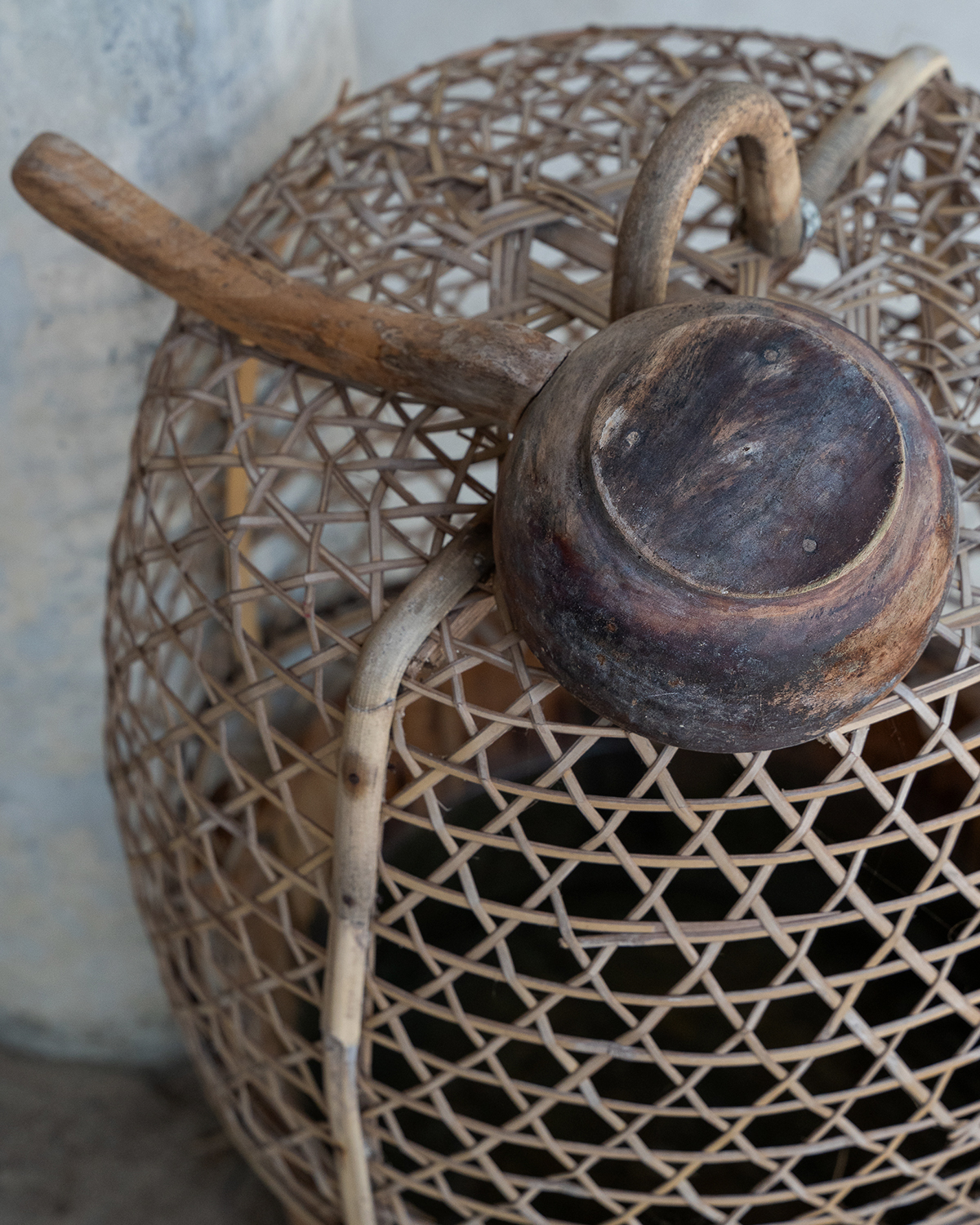
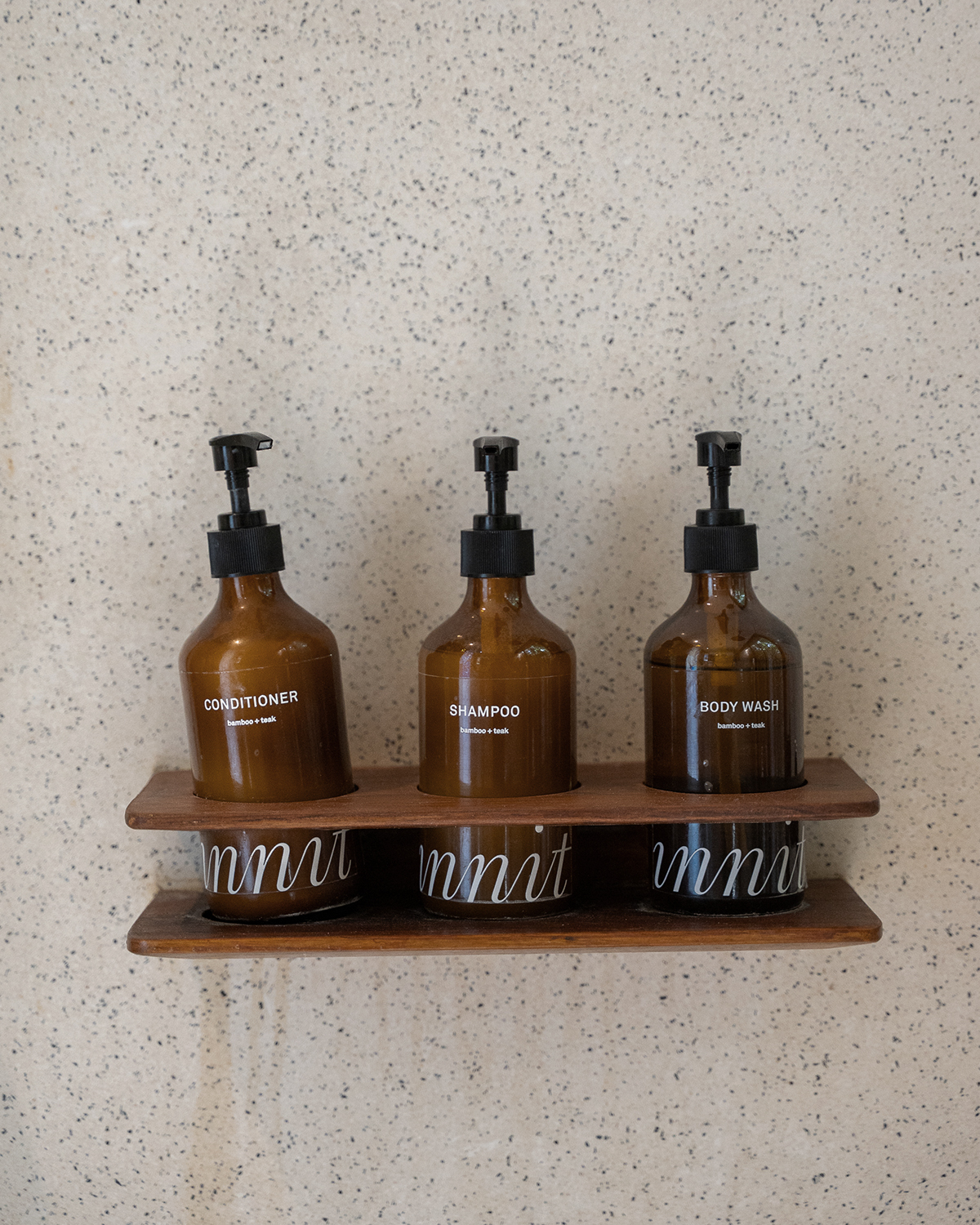
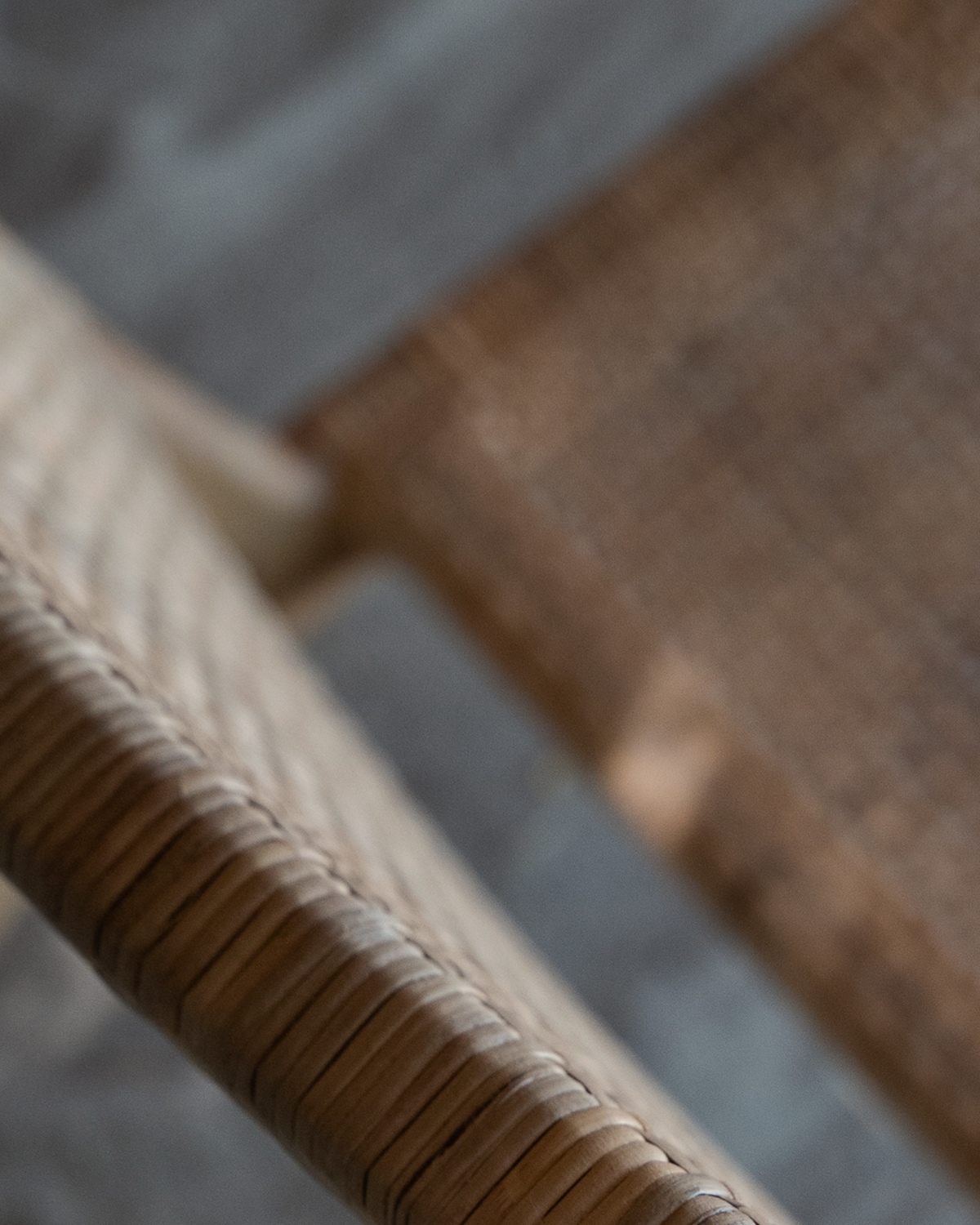
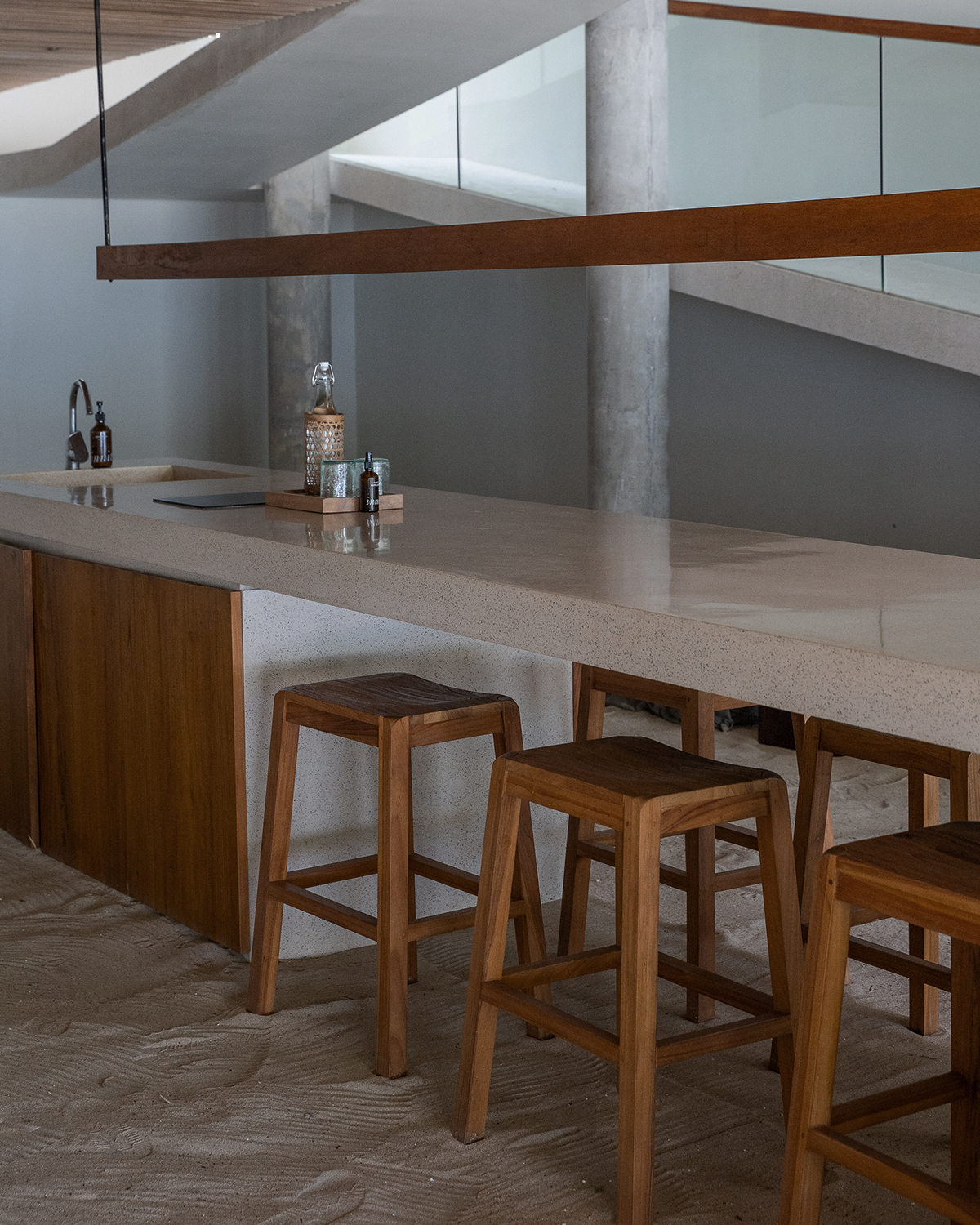
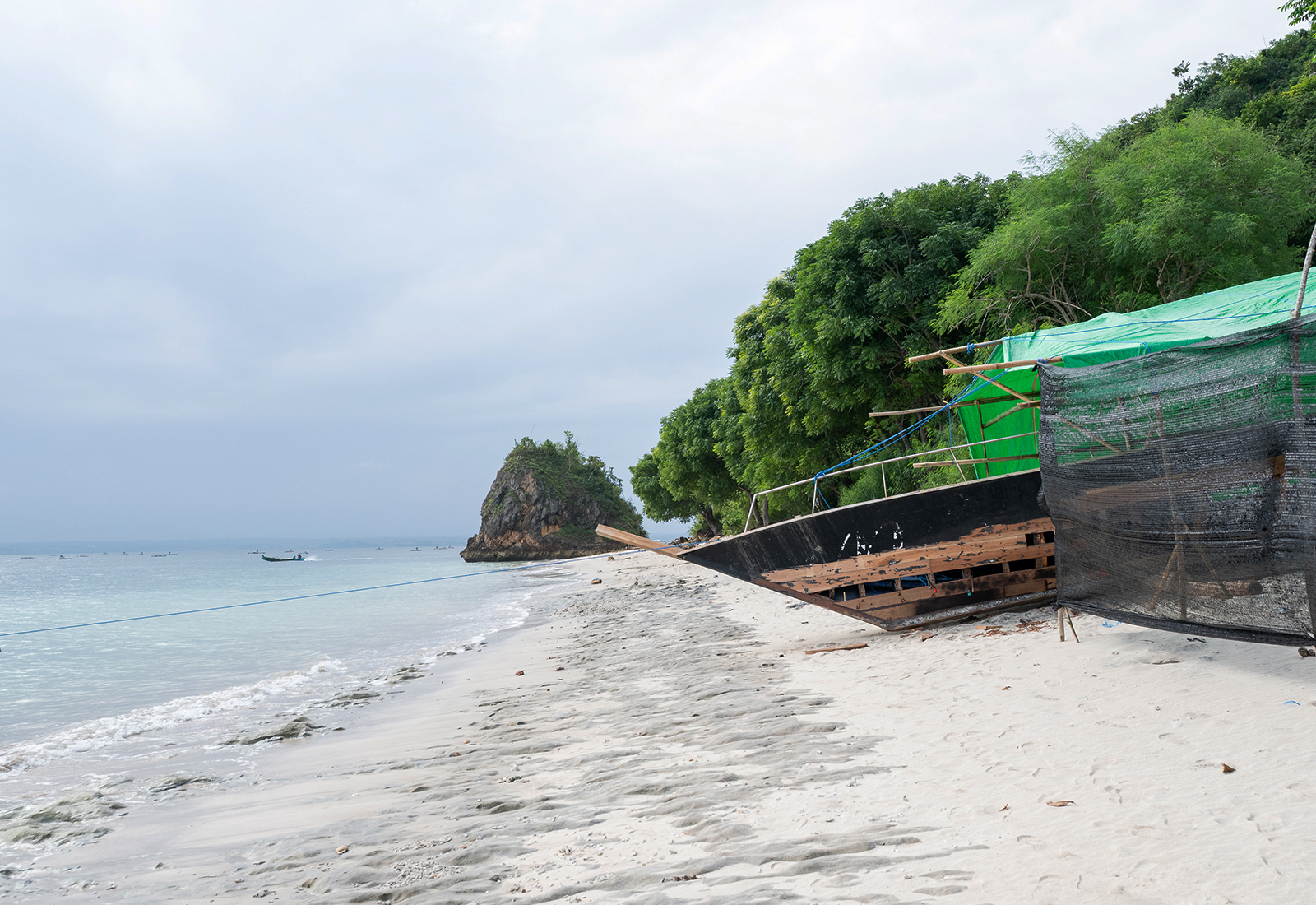
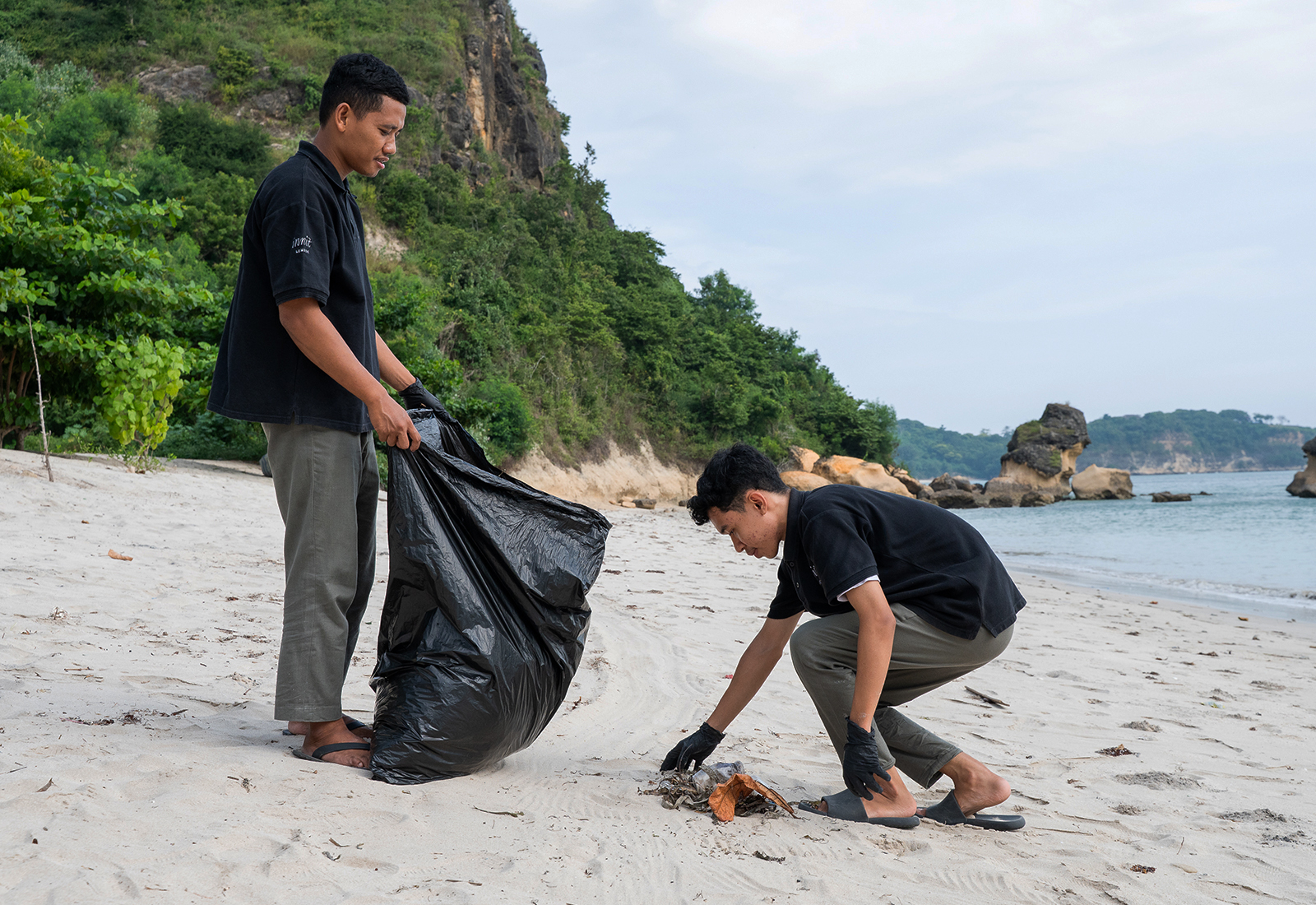
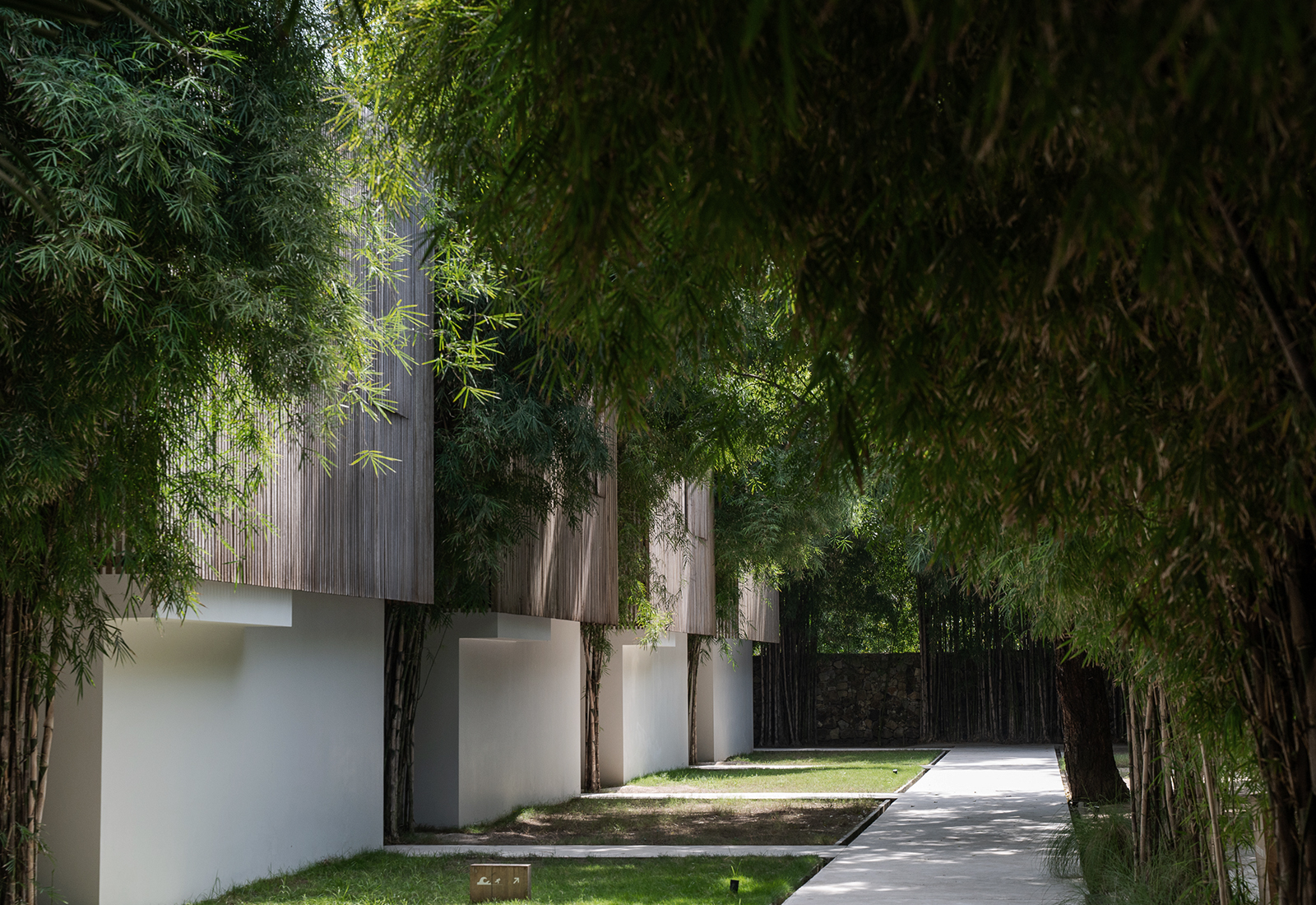
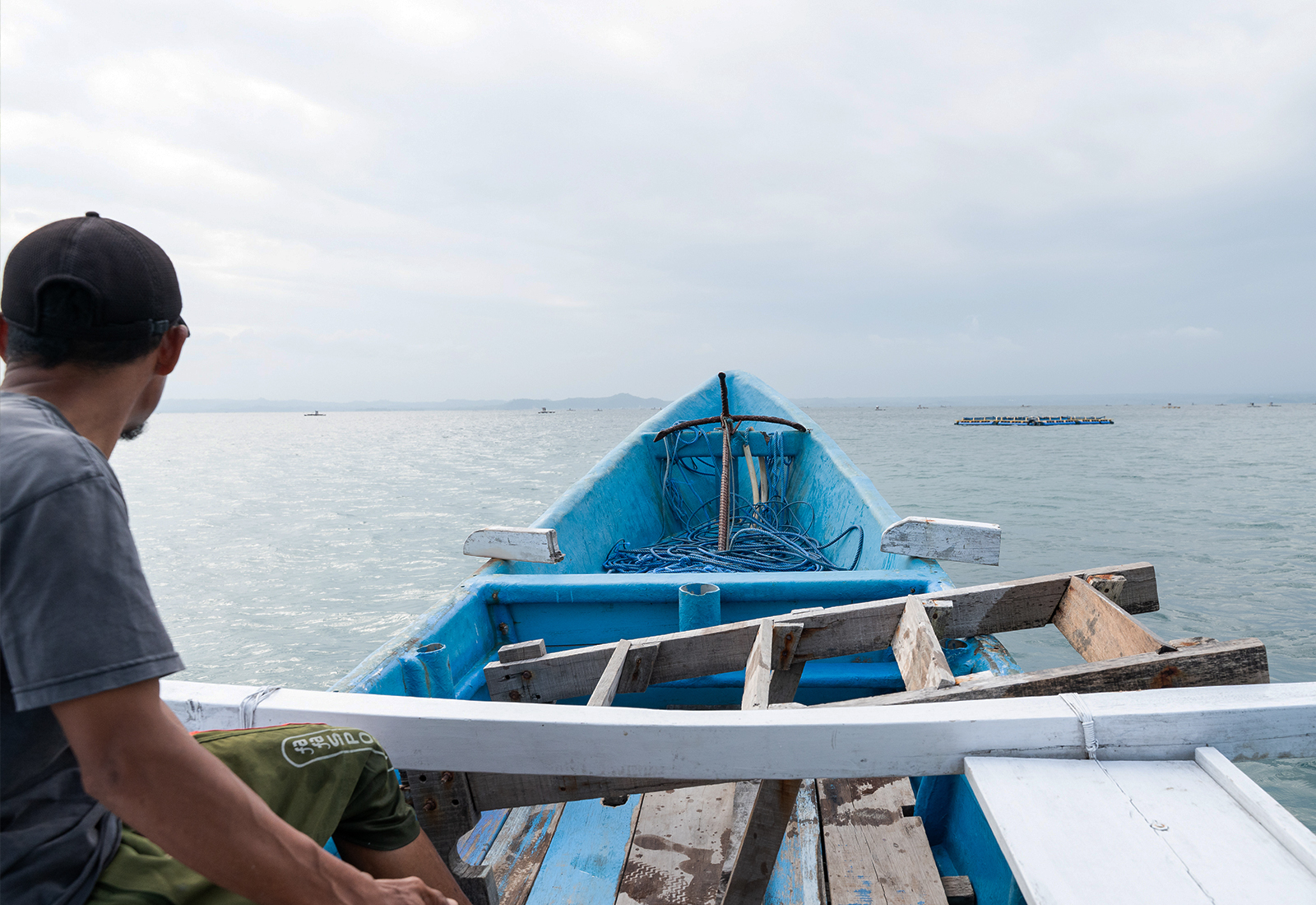
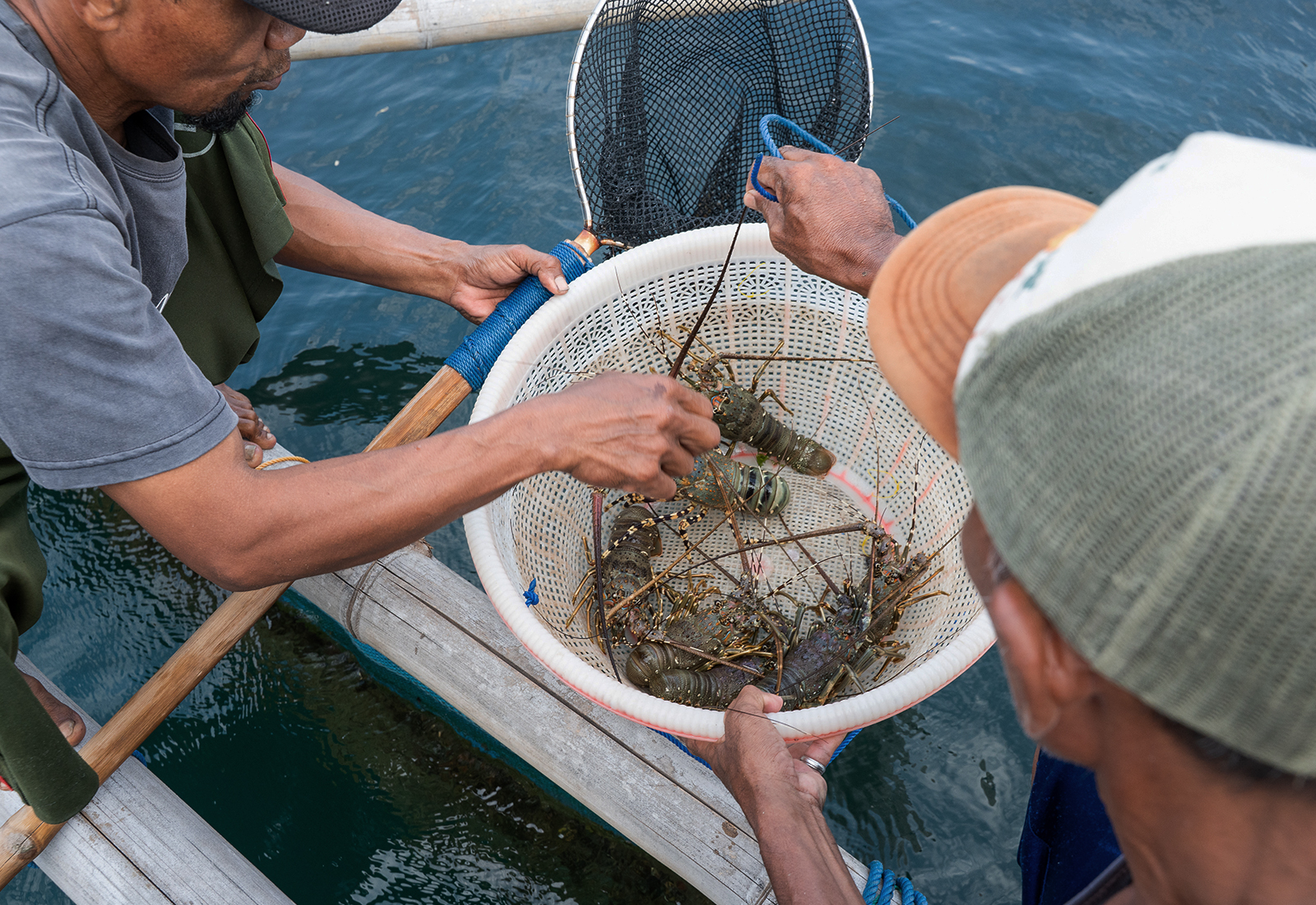
UNEARTHING, NOT INVENTING
This philosophy is in every corner of INNIT, including its restaurant, Anak Kampung. The kitchen doesn’t dictate; it listens. Dishes begin not on a whiteboard but in the field, on the shoreline, in conversations with neighbors. Corn ripens on the hillside. Then, it’s grilled, brushed with spiced butter, and its husks wrapped around fish. A nod to pepes ikan. A gesture of place.
Menus don’t follow a fixed script. They follow the seasons. What grows, what swims, what stays–these become the vocabulary. Floating farms along Ekas Bay raise lobsters quietly, patiently. Guests are invited to pull their own from the sea, return by boat, and watch it grilled over bamboo as the sun sinks behind the cliffs. It’s not just dinner. It’s participation.
This is the spirit behind Anak Kampung: a communal six-meter table in the tradition of kampung dining. Plates are passed. Stories are exchanged. The food is precise, but never precious. There’s elegance, but no pretension.
DESIGNING FOR REGENERATION
INNIT touches only a fraction of the land it owns. The rest is left wild. Vines climb rooftops. Monkeys pass overhead. Sea turtles return to lay their eggs. The land isn’t trimmed into shape. It’s allowed to breathe.
But sustainability here isn’t performance. It’s practice. Compost nourishes the garden. The garden feeds the kitchen. Leftovers support nearby pig farms. Amenities are refillable and organic. Shower caps and slippers are provided only on request. There’s a mini waste-sorting facility on-site–a necessity in a region without municipal waste services.
Plastic is minimized and, where possible, upcycled. Glass bottles are saved. Cooking waste finds its way into sauces, broths, and garnishes. Even the avocado skin is collected, destined for natural textile dyes in a new collaboration with local artisans.
LOCAL SOLUTIONS, LOCAL HANDS
INNIT’s approach to sustainability goes beyond its boundaries. A traditional lobster farming facility has been established to support community aquaculture. A recycling initiative in nearby Kuta is underway, transforming discarded plastics into everyday goods. This is not about scale. It’s about systems. It’s about creating a closed loop that serves both nature and neighbor.
From construction to operation, INNIT prioritizes local hands. More than half the staff are from the surrounding village. Many arrived without formal hospitality training, but with deep-rooted knowledge of the land and sea. They were trained, supported, and trusted to grow into their roles: boat captains, engineers, gardeners, and hosts. Not hired, but included.
During construction, INNIT offered new trades to locals–skills that remain long after the buildings are complete. The team buys directly from farmers, supports fishermen, and funds education and health initiatives. This is hospitality that builds, not extracts.
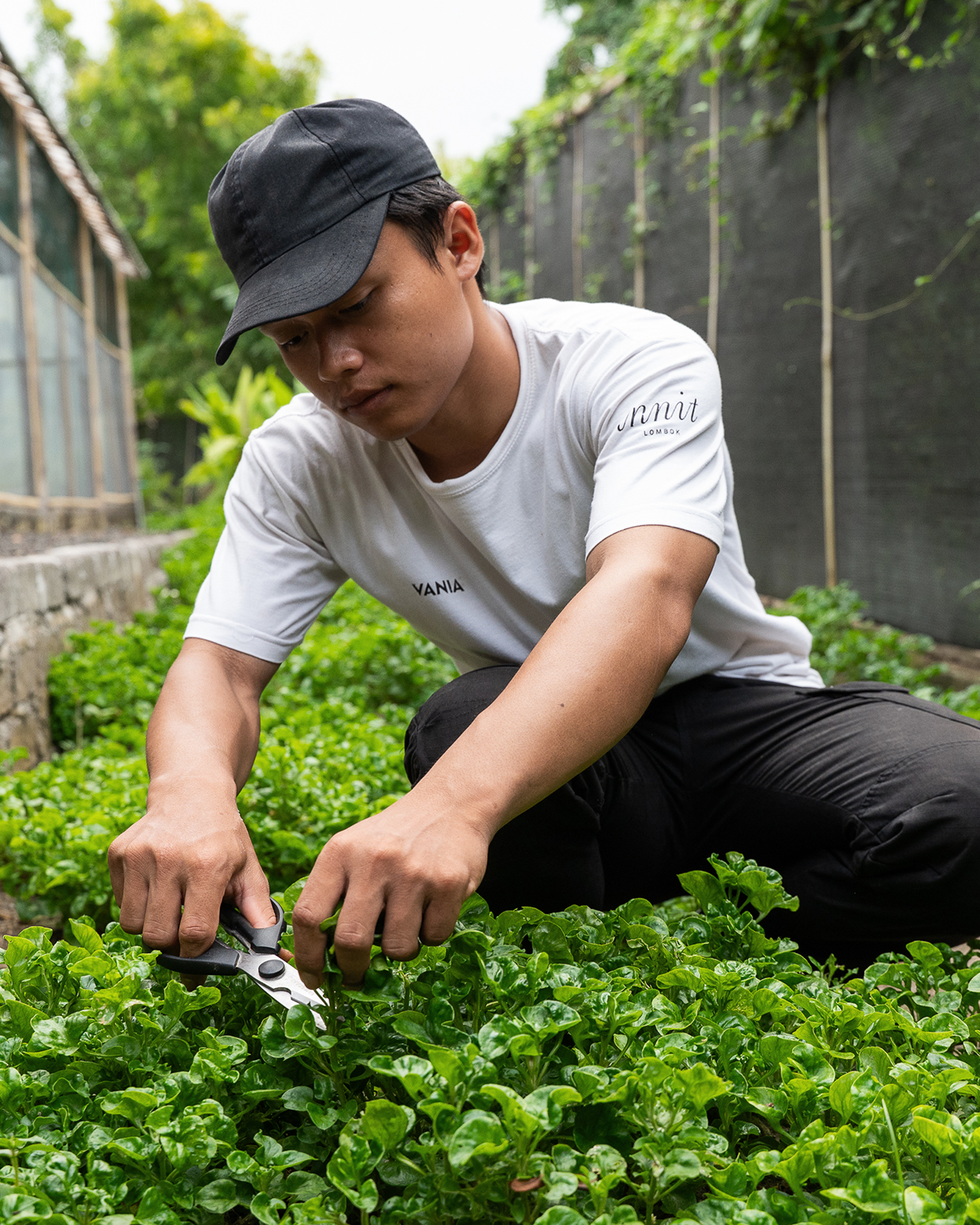
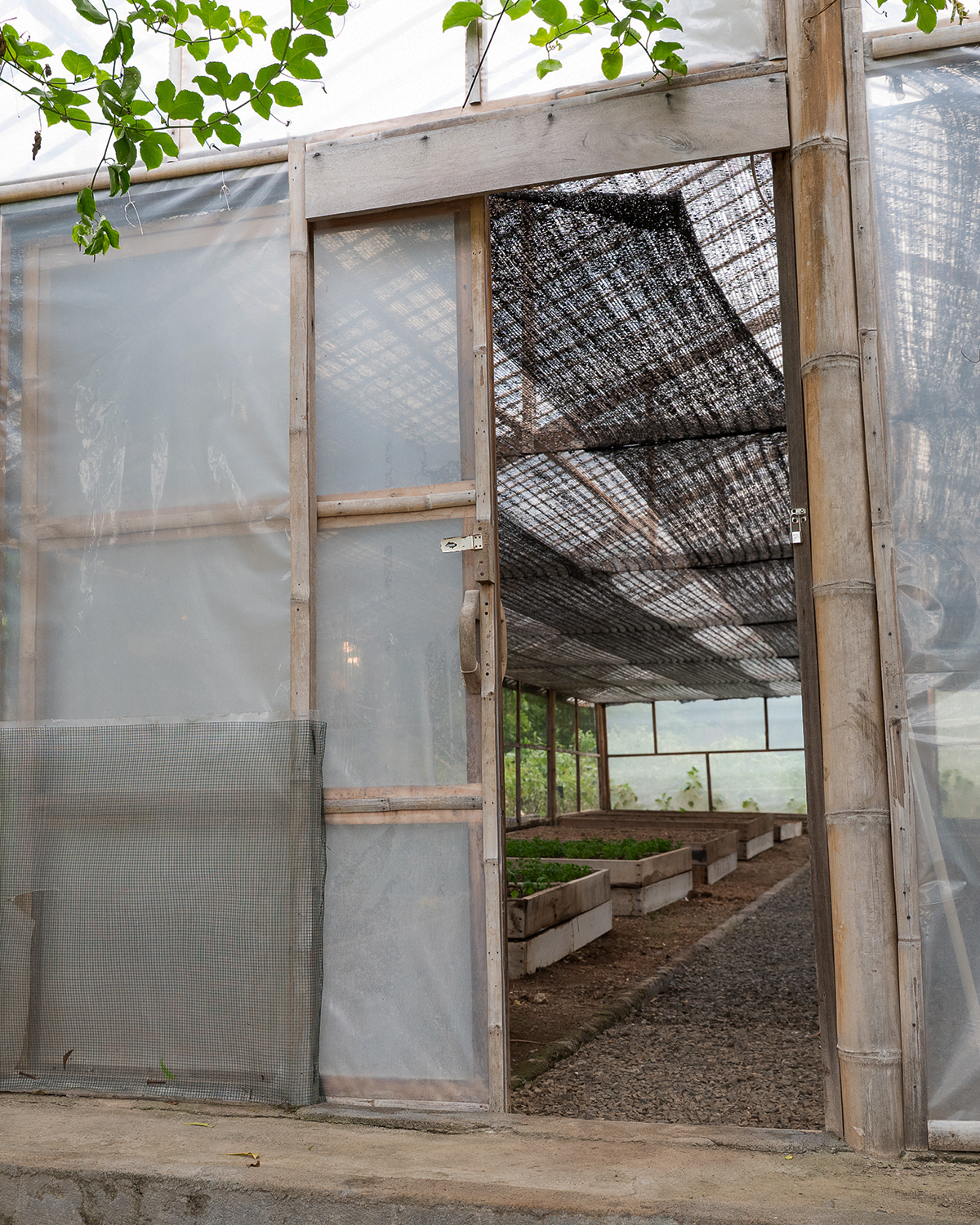
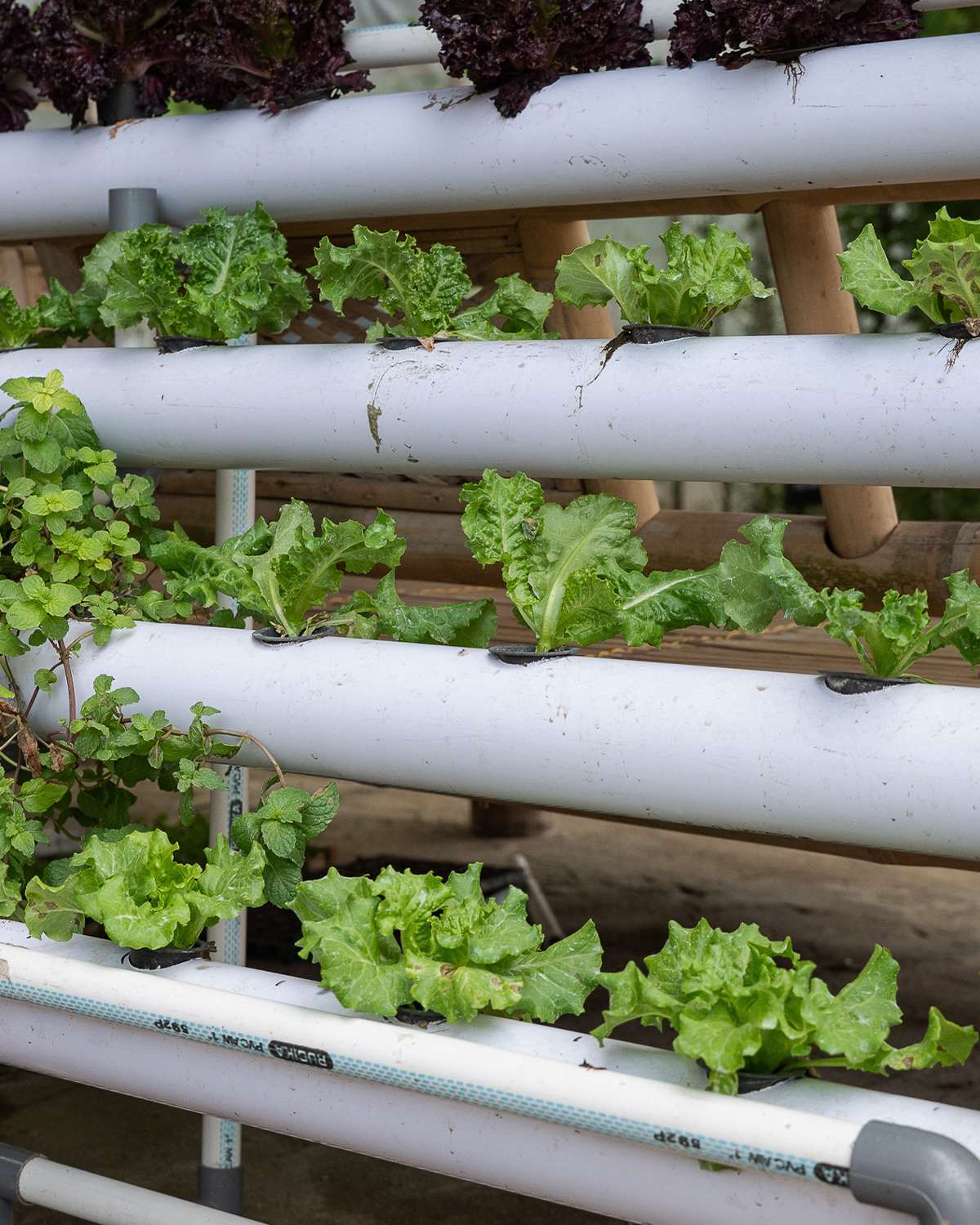
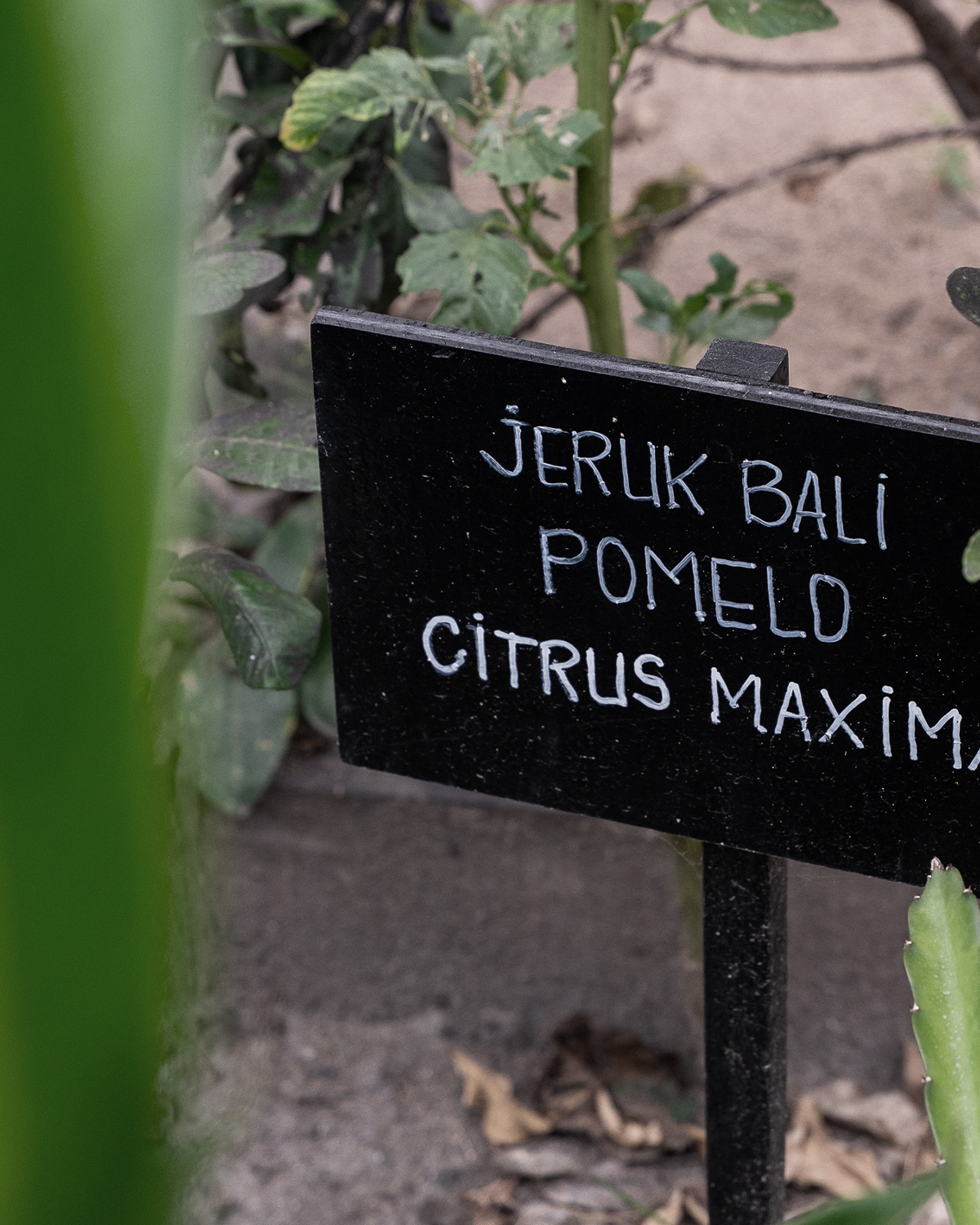
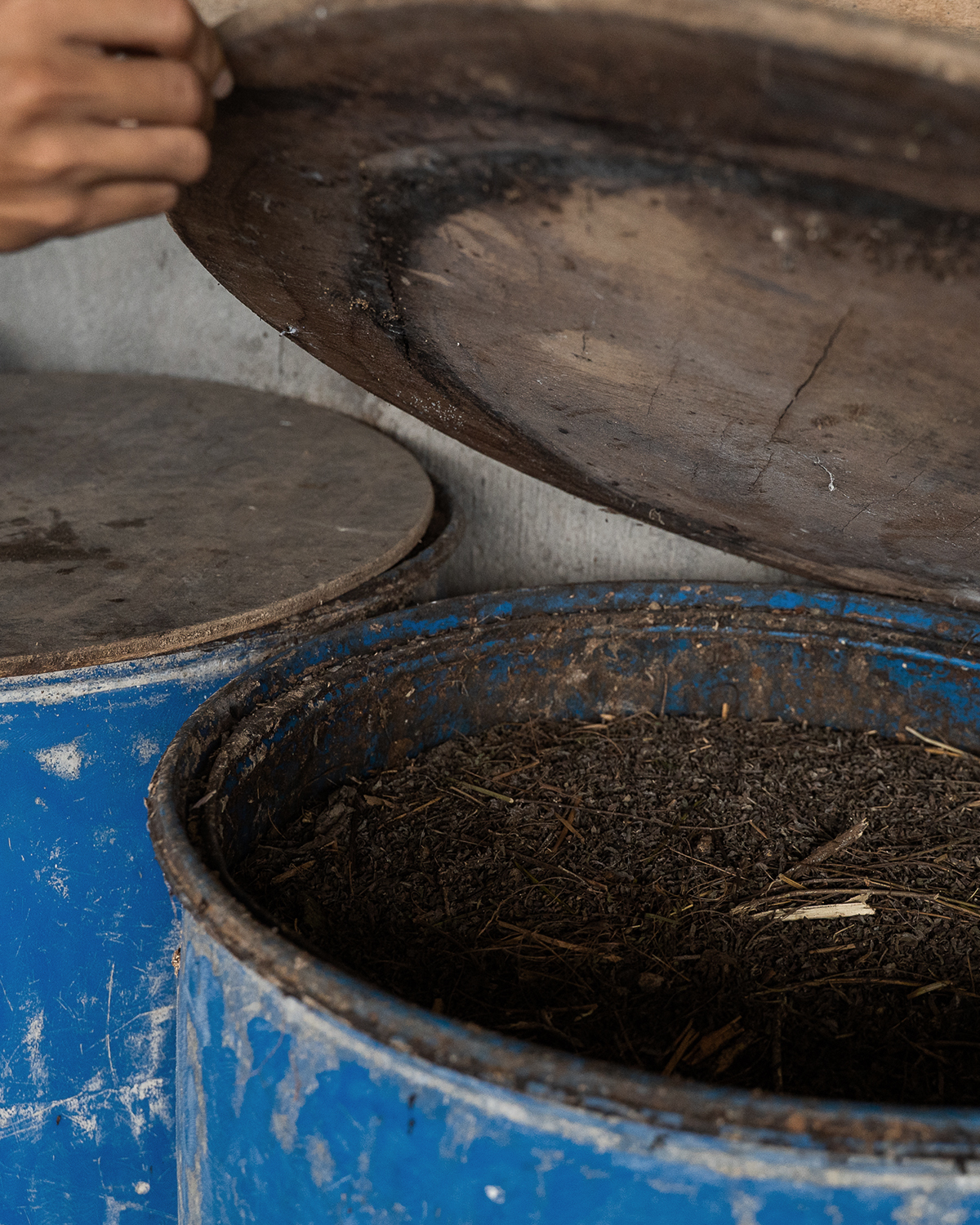
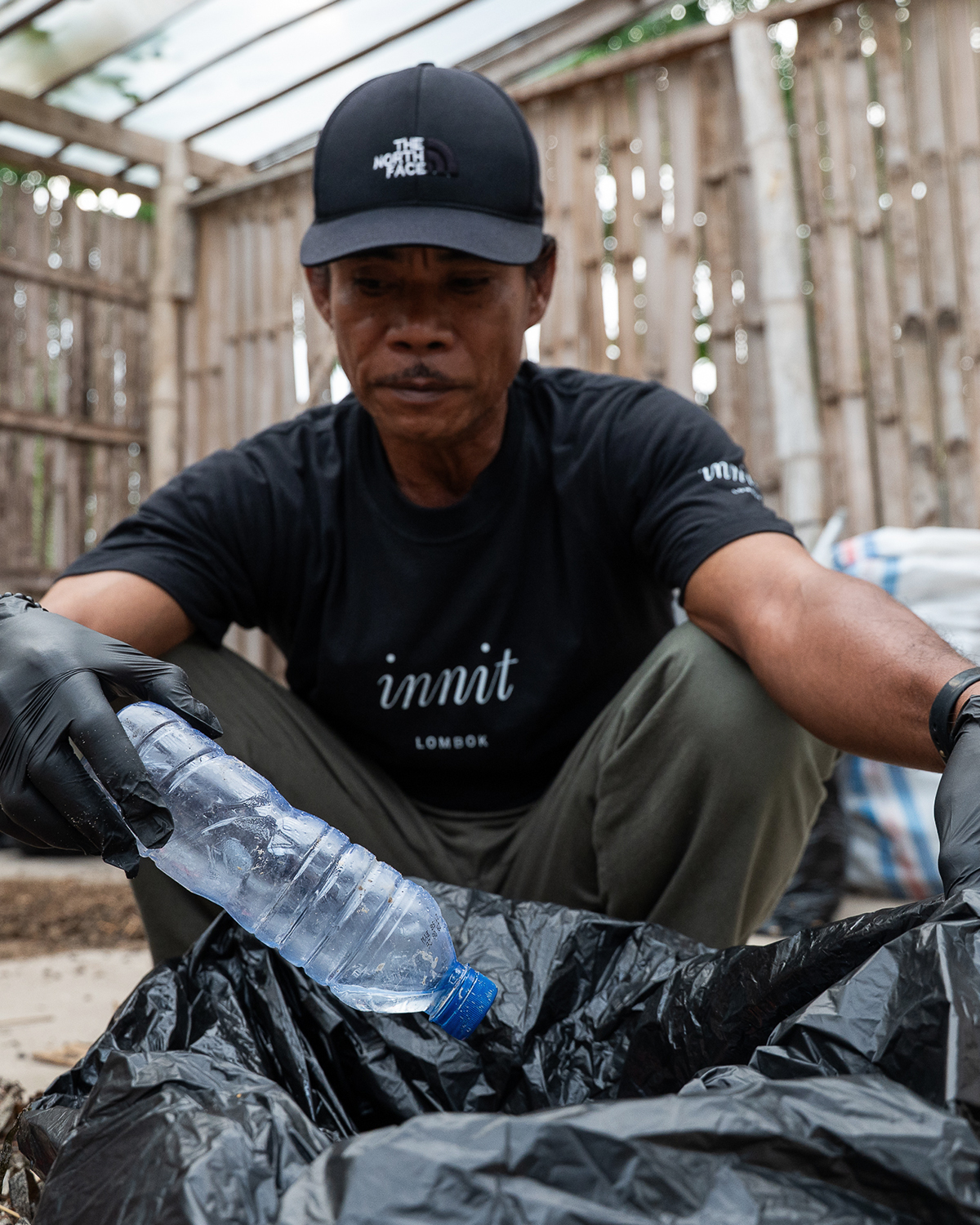
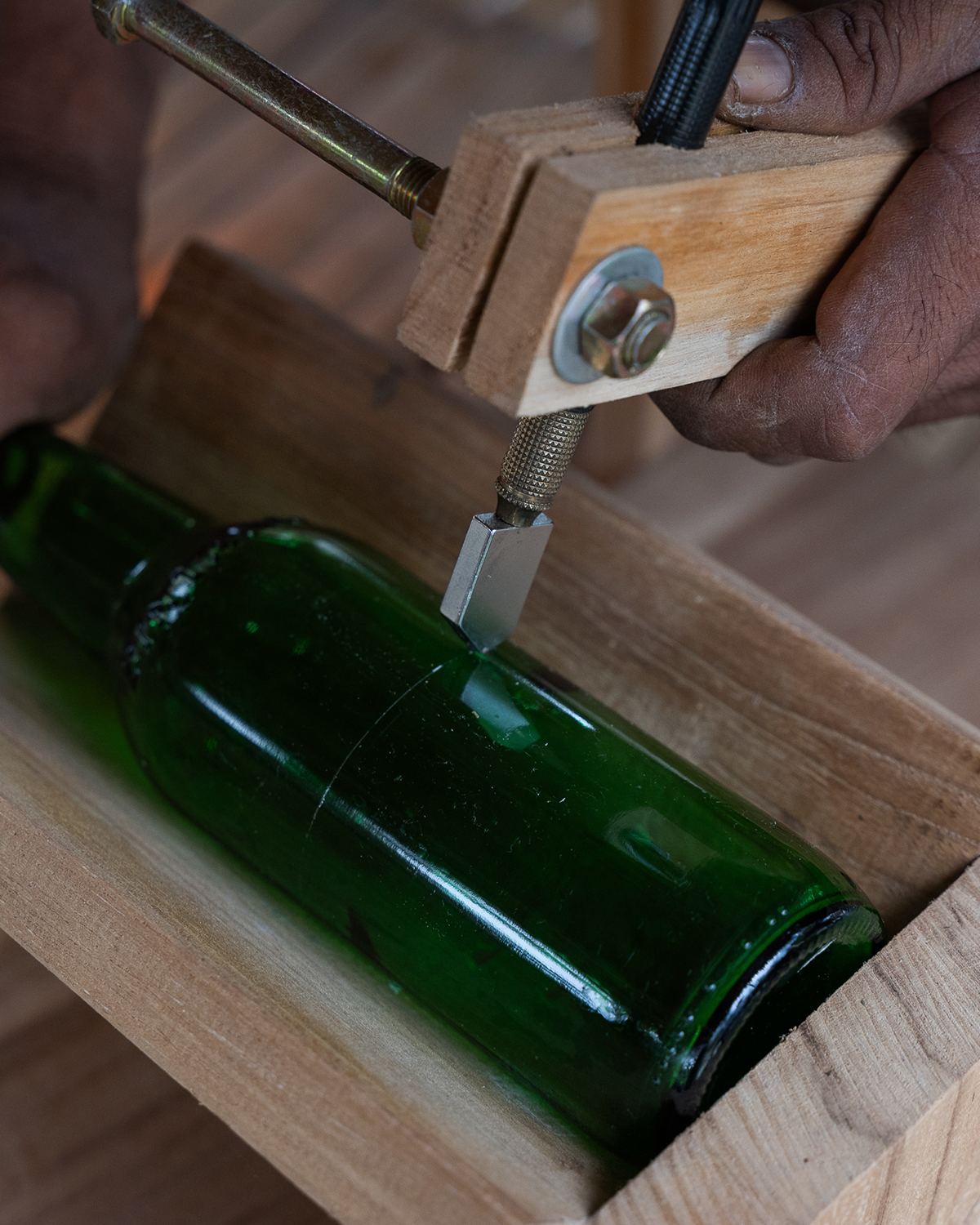
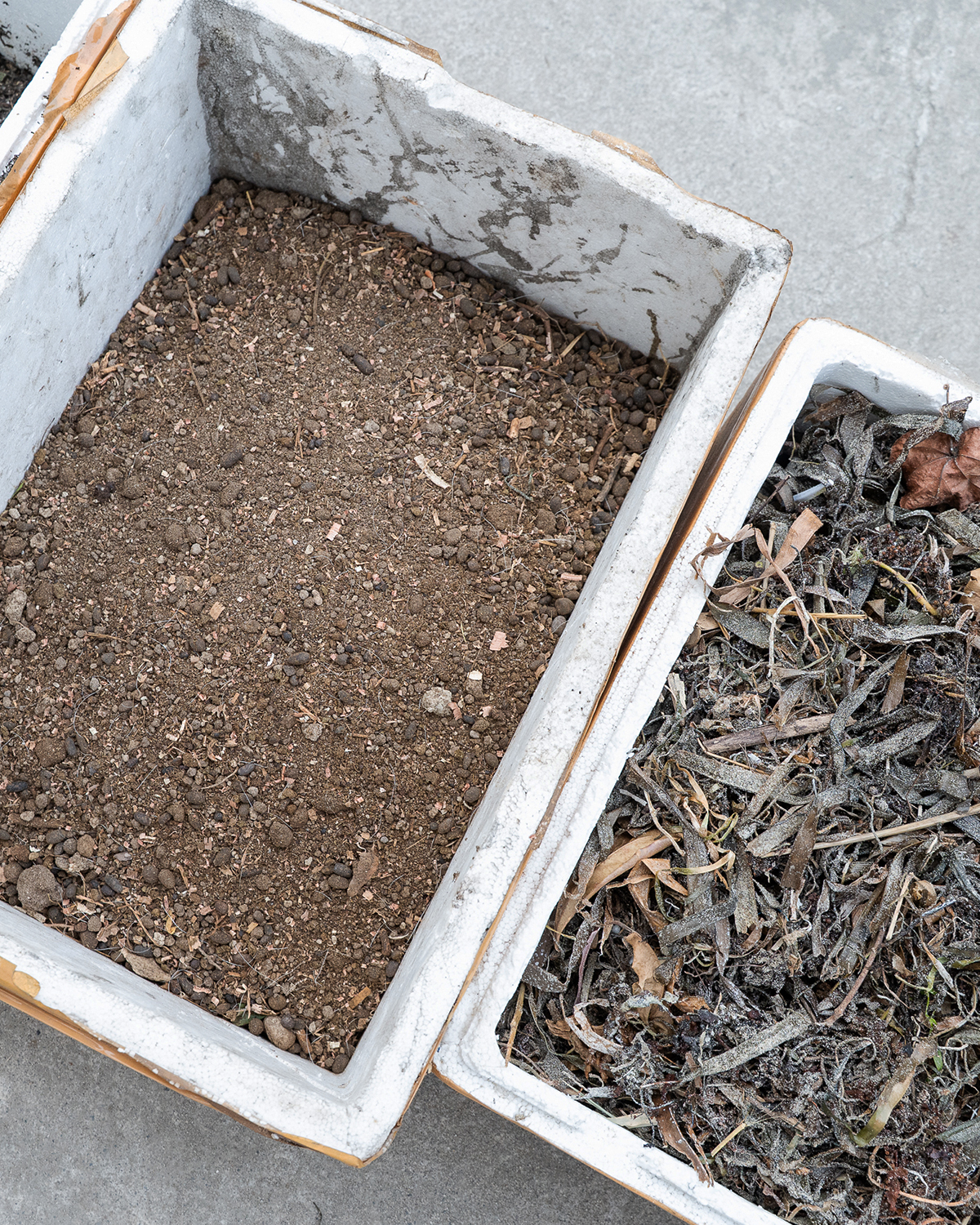
BEYOND THE TABLE
INNIT isn’t just a destination–it’s a blueprint. A new way to imagine what hospitality can look like when it slows down and listens. Future projects are not driven by profit, but by purpose. A recycling facility. A shelf of goods made from trash–not for sale, but for story. To remind guests and communities alike that waste is only waste if we waste it.
INNIT is not trying to be the next big thing. It is trying to be the next right thing. A place that doesn’t just look beautiful, but behaves beautifully. Where luxury isn’t excess–it’s meaning. A lobster pulled from the sea, a meal passed around the table, and a footprint that vanishes behind you.
THE NEW KIND OF LUXURY
Because at the edge of Ekas Bay, where cliffs fall into water and the wind carries stories, luxury means something else. It means a design that respects. Food that roots. Culture that includes. INNIT is not built for escape, but for return.
It listens. It adapts. And it waits for those who are ready to trade performance for presence. This isn’t a hotel. It’s a village. A reminder. A whisper of what could be. A way forward, grounded in the soil beneath our feet.
EXPLORE THE PUNCH

